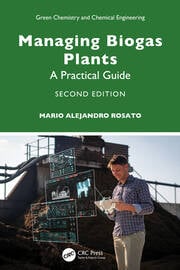Prof. Jing Liu, of the University of Lund (Sweden) presented his views on the future trends in R&D and the challenges of technology transfer to the biogas industry.
The conference, organized by Agroenergia, took place in Vercelli, Italy, on 16th Nov. 2012.
In the next links it is possible to download the text in English and the translation into Italian of the slides.
prof. Jing Liu – The development of the biogas technology from Mario Alejandro Rosato on Vimeo.

![[cml_media_alt id='2105']first test OPb[/cml_media_alt]](http://sustainable-technologies.eu/wp-content/uploads/2012/02/first-test-OPb-225x300.jpg)
![[cml_media_alt id='2106']sediment-first test[/cml_media_alt]](http://sustainable-technologies.eu/wp-content/uploads/2012/02/sediment-first-test-225x300.jpg)



